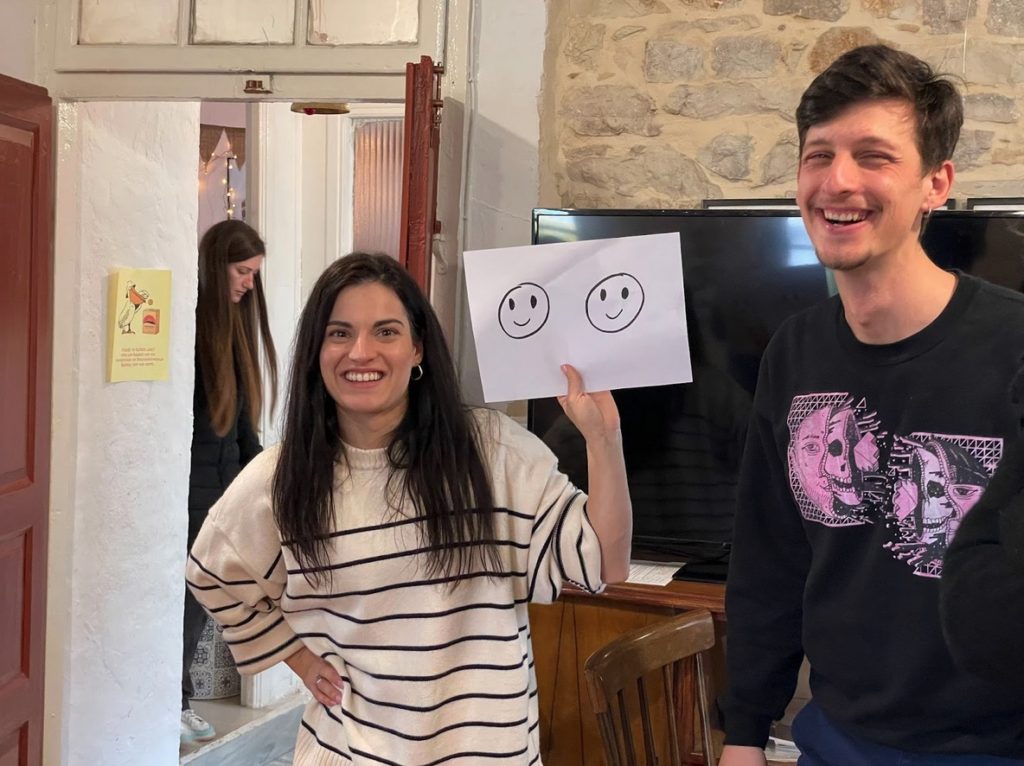
“A great and playful way to talk about democracy.” (Teachers interview)
A total of 98 children took part in the survey, all of whom attend public schools. Each of the classes surveyed represents a different context, both educationally, related to the country’s school system, and socially, consisting of economic aspects, class status and ethnic background. Classes differ in terms of their participation in sports or arts activities. This may be related to the limited availability of cultural/sport offerings or workshops in a particular school or locality, or the economic status of the family not allowing participation in extracurricular activities. The national groups also differ in their level of declared involvement in the life of the class and their feeling of safety in sharing their opinions in the classroom. This, in turn, may be influenced by relationships within the class, group dynamics and the roles the children have taken on.
The method combining aspects of games, sports and theater elements was evaluated positively by most pupils. Also a large majority said they would be willing to take part in similar activities in the future. When comparing the responses of the two questionnaires, it can be seen that the children already had a good knowledge of teamwork, conflict resolution and the value of taking part in training or sports competitions. The post-workshop questionnaire shows a broadening of the range of associations and thus of the knowledge on these topics. The children readily chose more answers, thus recognising the broader aspect of the issues.
Teachers unanimously underline their interest in extending the pedagogical workshop with new tools. Most of them also indicate the need to address topics such as democracy, tolerance and Olympic values within the school curriculum. Simultaneously they also emphasize lack of preparation to transmit this type of knowledge, and see a need for extended training and the acquisition of new educational tools. Therefore the preparatory workshops, in which the educators had the opportunity to familiarize themselves with the method and its implementation, were rated very highly by them. Above all because of their content and educational value and because of their efficient organization.
Before starting to implement the method in classrooms, teachers’ biggest concerns were to maintain interest among pupils and also to distribute attention evenly between the game and the educational content. Some of the concerns proved true. In the final questionnaire, teachers comment on the group dynamics, indicating that it was difficult for pupils to concentrate as well as to communicate efficiently in the group. On the other hand, it was exactly this area of interaction, of finding agreement and common solutions, of democratic decision-making that was indicated as the strongest point of the method. The method prompted the pupils to have more dialogue among themselves, to listen to each other and to be more attentive to different opinions within the group. The workshop created an inclusive and inviting space for all children to participate. They were also an interesting and attractive activity for this age group, thanks to the combination of playing, sport and theater elements.
Some of the quotes from the interviews with teachers after the introducing the method in their classes:
- These games make you feel empowered.
- I believe that theater at school allows you to approach all skills.
- All these ideas, you can apply them as a pedagogical approach on other themes. For me, that’s what I’ll imagine. I find it very rewarding personally and professionally. Many ideas that spark!
- As a teacher, we often have to develop values of empathy, respect and listening but it is often very abstract. Using theater and sports is a great tool. That’s what I’ll remember.
- The methodology shows us another way of expressing emotions. Living, with postures, gestures, and thinking around, this can be very helpful for students.
- I’m sure working like this can bring out some students in class. We will talk about more personal things. There may be a change of attitude.
- When important theoretical values of the Olympic Games are put into practice…
